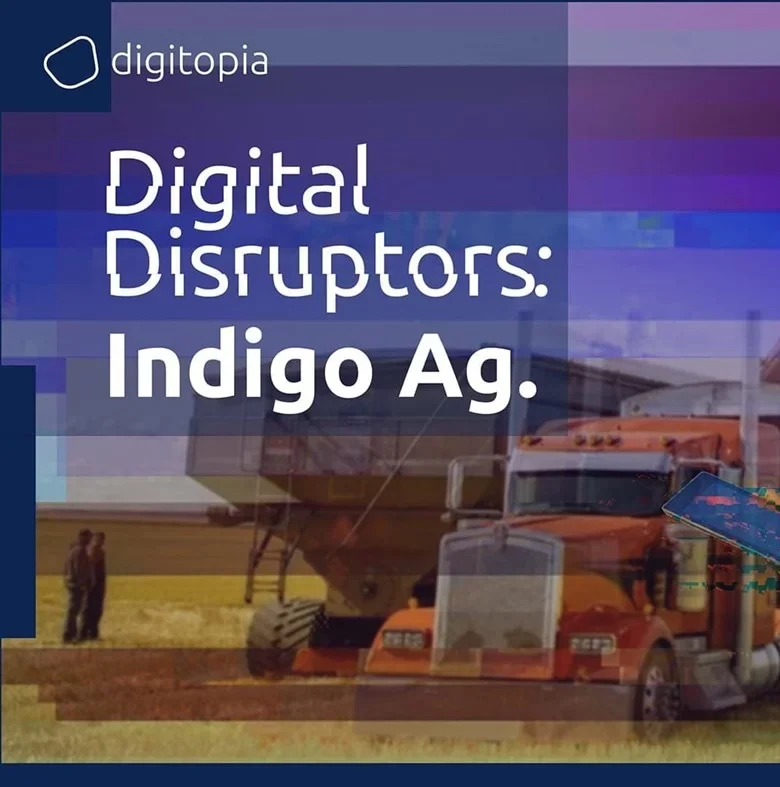
Digital is inevitable, and it is inevitable for every business and every industry. Agribusiness is one of the biggest industries in the world, valued up to $5 trillion; and its lagging behind in digital transformation. Technological advancements in the industry have indeed brought efficiency and cost reduction, but the aim has always been to get the most out of a piece of land for farmers.
Until now. A seven year old “agtech” startup, Indigo Agriculture, has set out to “make the food system more responsive to consumer preferences.” Indigo says that all crops are different in their attributes, and farmers should be compensated accordingly. The company creates seed treatments, from microbes and traceability technologies, to maximize the yield of a single crop.
Originating as one of the 100 Flagship Pioneering Venture Capitals that generated over $30 billion in aggregate market value, Indigo is valued at $10 billion. Recently, Indigo has partnered with the World Bank, IMF, the Inter-American Development Bank on the Development Data Partnership. The company is considered a promising initiative against the potential global food crisis and climate change.
What’s the Big Deal?
In traditional agribusiness, crops are priced based on type and market demand. However, no two crops of the same type are equal when it comes to their attributes – i.e., how much starch or water they contain can drastically alter crop behavior.
Indigo is the first to challenge this status quo; by genomic sequencing and bioinformatics, the company has created a vast database that analyses plant microbes and uses machine learning to predict what each crop needs to maximize yield.
Yet, all of that still wasn’t enough to disrupt market dynamics. Thus, Indigo created their own end-to-end traceable supply chain with “Indigo Marketplace”, “Indigo Atlas”, and “Indigo Transport.” Even still, they are constantly looking for ways to innovate with initiatives Indigo Carbon and Indigo Research Partners. With these branches, Indigo Agriculture has been coined “the world’s largest agricultural lab.”
The Core Disruption
Indigo launched Indigo Marketplace in 2018, offering quality crops with unique attributes by directly connecting growers with buyers. Buyers choose the attributes and crops they want, and Indigo takes care of the rest.
To do that, the company has Indigo Transport, which connects haulers with shipments. Indigo does not own any warehouses. Rather, they offer zero-interest loans to farmers to use long-term storage methods called “grain bags.” Moreover, farmers are directly incentivized monthly by Indigo if they allow their grains to be monitored. Quality control and real-time data stream on top of the marketplace makes Indigo a true platform.
Using the same approach of a platform for open innovation, Indigo launched “Indigo Research Partners,” which works as an open R&D tool for growers and innovators. With around one trillion data points collected per day by its 125 partner farms, the company and their partners can test new technologies in the environment for which it will be used. Moreover, Indigo holds event challenges like The Carbon Cup, which incentivizes innovation on in-farm carbon sequestration.
The Digital Superpowers:
Design: With its dedicated venture called Indigo Engineering, the company designs state of the art UX for the industry, making big brokerages as simple as requesting an Uber or ordering something from Amazon.
Connectivity: A global network of sensors, drones, satellites, and trucks enable both the customers and the suppliers with real time traceability through dashboards. Through the Indigo Research Partners platform, the growers also have access to the best practices around the globe.
Intelligence: Indigo Atlas utilizes connected infrastructure and combines historical and current weather data to create actionable insights on crop performance across different regions. Also, the company has a podcast called GrainWaves for real-time market insights.
Speed: One of the biggest selling points of the Indigo Marketplace is to choose the delivery date attributed to its operational efficiency. Every insight generated at the HQ is delivered to the buyers, growers, and partners in real time through its platforms.
Lessons Learned
Today, Indigo Agriculture has ventures across the global supply chain. It manufactures seed treatments, accelerates precision ag technologies, and is investing in next-level storage and logistics practices. But their biggest value lies in their platform; creating a connected, digital ecosystem for agribusiness.
Companies across all industries must acknowledge and embrace digital change. Building an ecosystem through its platforms and putting data at the center of operations and user experience has enabled Indigo to disrupt the agriculture industry with a holistic outlook.
Traditional farming methods will not go extinct for now, but it is fundamental for all players in the sector to invest in their data and analytical capabilities to stay relevant in the new market dynamics – and to save the planet.
The Digital Maturity Connection
Technology is a crucial enabler for innovation. It is trendy, extraordinarily exciting, endlessly engaging, and effortlessly captures the attention of venture capitalists. As technology continues to permeate every aspect of our life, you either win together, or you lose together. Technology is not just about data, applications, and infrastructure. True digital maturity requires a lot of strategizing and empathizing with business units. We are strong “balance” advocates. Extremes and fixed ideas destroy innovation, hinder flexibility, and may sacrifice resilience as well.
Through digital capabilities, Indigo was able to balance their people through digital maturity and cover every aspect of the agriculture industry, from seed to sale. A true digital disruptor.

